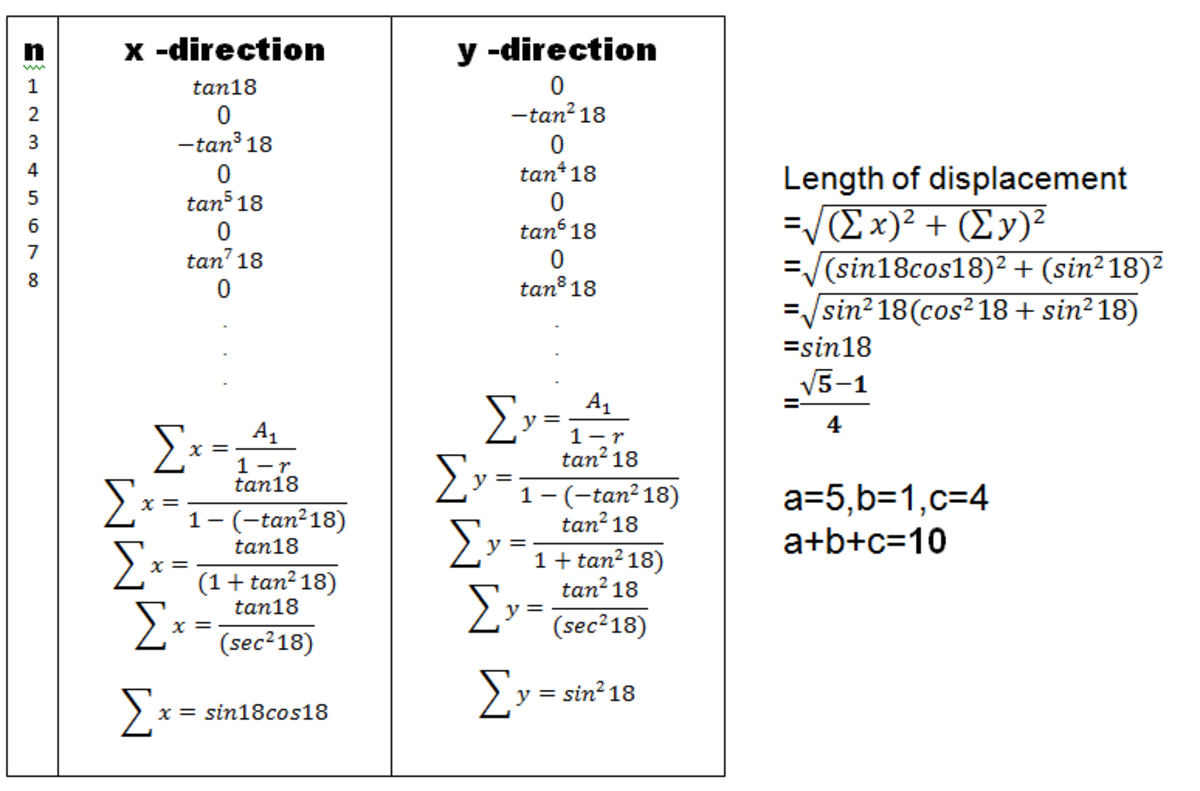Thrown for a loop
Suppose a particle, starting at the origin of a standard -grid, travels in a rectangular spiral, first moving in a straight line east, (i.e., the positive direction), then north, (i.e., the positive direction), then west and then south, repeating this "loop" ad infinitum, such that the th move has length units. (The argument of the function is in radian measure.)
If the (magnitude of the) displacement between the starting and finishing points of the particle is where are positive integers with square-free, then find
The answer is 10.
This section requires Javascript.
You are seeing this because something didn't load right. We suggest you, (a) try
refreshing the page, (b) enabling javascript if it is disabled on your browser and,
finally, (c)
loading the
non-javascript version of this page
. We're sorry about the hassle.

Letting θ = 1 0 π , the distance the particle travels in the positive x direction is
k = 1 ∑ ∞ ( − 1 ) k + 1 tan 2 k − 1 ( θ ) = 1 + tan 2 ( θ ) tan ( θ ) = tan ( θ ) cos 2 ( θ ) = sin ( θ ) cos ( θ ) .
The distance the particle travels in the positive y direction is
k = 1 ∑ ∞ ( − 1 ) k + 1 tan 2 k ( θ ) = 1 + tan 2 ( θ ) tan 2 ( θ ) = sin 2 ( θ ) .
The distance between the starting and finishing points is then
sin 2 ( θ ) cos 2 ( θ ) + sin 4 ( θ ) = sin 2 ( θ ) ( cos 2 ( θ ) + sin 2 ( θ ) ) = ∣ sin ( θ ) ∣ .
With θ = 1 0 π = 1 8 ∘ , the desired distance is
sin ( 1 8 ∘ ) = 4 5 − 1 , and so a + b + c = 5 + 1 + 4 = 1 0 .